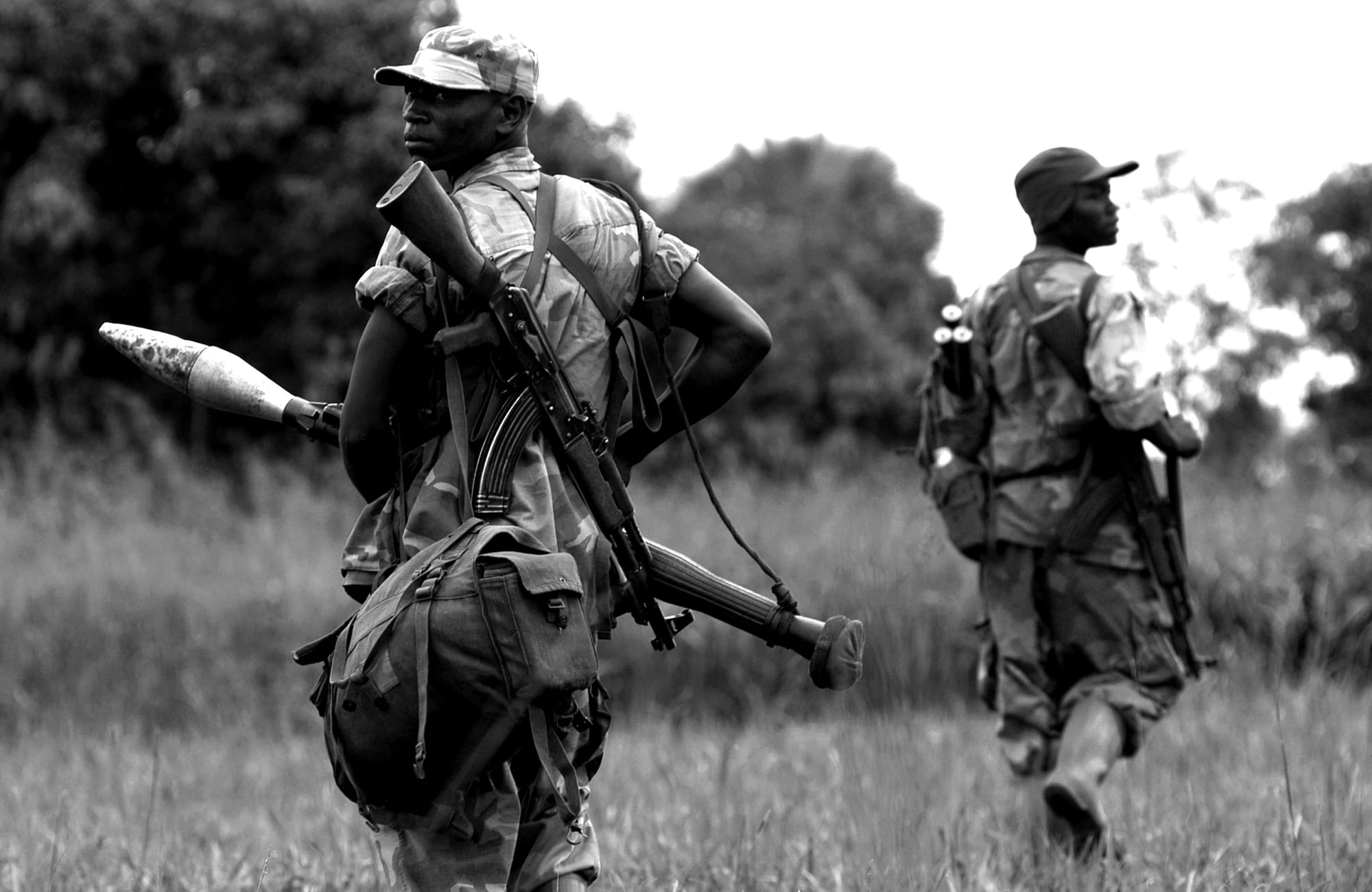Acholiland’s Fogotten War - Uganda

Acholiland’s Fogotten War
Story and photographs by Andy Rain.
Dusk can be a perilous time across Acholiland. For fear of attack and abduction by the Lord’s Resistance Army children from displaced people’s camps and rural areas across northern Uganda leave their villages every night to walk for miles by foot to urban areas where they sleep in bus stations, churches, night shelters and store fronts. Some 50,000 ‘night commuters’ as they have come to be known return home at dawn when it is safe for them to go to school. In a war that is rarely reported, the plight of the Acholi’s and its children has fallen into the shadows.
For 18 years the Ugandan Army has been fighting the mysterious Lord’s Resistance Army. The LRA and it’s leader Joseph Kony, who claims to inherit spiritual powers took up arms against the Ugandan government in 1987 under the name Lord’s Salvation Army, and later the United Salvation Christian Army, became Lord’s Resistance Army in 1994. Kony’s army thought to number a few thousand troops, made up of mostly abducted children has turned brutal over the last decade, targeting their own people, the Acholi’s. Rampaging the rural landscape the LRA have, observers of the war claim, taken revenge upon their own people for rejecting them.
Tens of thousands of children have been abducted, killed and mutilated. More than one and a half million people, over 90% of the Acholi population have been forced to flee their homes and now live in dilapidated grass huts in sprawling refugee camps, 80% of them women and children. Conditions are cramped with little food, water and health care. Sporadic LRA attacks continue at night with looting, killings and abductions. Moreover, a whole generation has been born in camps. People’s farms have been neglected for so long they are now lost to the bush. Acholi’s have nowhere to return. If it were not for bi-monthly World Food Program food distributions, hundreds of thousands of people would die from starvation. But they are kept alive, just.
The children of this forgotten war are witnessing the unspeakable. Former LRA abductees return from the bush traumatized, often unable to recount their experiences. Francis Odong, 12, was one such boy at Gulu’s Child Protection Unit. Francis had just arrived in Gulu. He had escaped the LRA while out patrolling in the bush. He had walked for month, surviving on the sourgham, a wheat like grain that he had been forced to carry by the LRA. He finally found the safety of Gulu town. When I met him, he stood alone staring out the window of his cell like room.. His body emaciated. His eyes distant. He didn’t have the words to express his painful torture. Other children are born in to captivity, knowing nothing of a normal life. Many Acholi’s believe that if Kony is caught their horror may be brought to an end.
“The problem is, is that the government cannot stop the abductions,” says Robert Okeny, 29, center administrator at GUSCO (Gulu Support Children Organization). “If we could stop the abductions maybe we could see an end to all this”. No one caught up in this conflict is anticipating for a moment though, that it will end soon.
Eighteen years of continued struggle has taught the Acholi’s that much. The Ugandan government as recently as Septmeber 2004, announced that the war is won. But claims of victory are too often proved wrong with further LRA attacks and massacres. Many Acholi’s believe the Ugandan Army is content to let the war to drag on, allowing the top military brass to fill their pockets with the war budget.
The true tragedy of this enduring war is not the inconceivable cruelty inflicted upon women and children, but the fact that the scale of the disaster has been overlooked, neglected by the Ugandan government, ignored by the international community. Arguably, nowhere in the world have so many millions of people been displaced for so long, where countless children have been subjected to such brutality while their fate has gone unnoticed.
Twenty years ago the global community’s conscience was stirred and made a compassionate stand for Africa in Ethiopia. Where is the world’s conscience today? Where is our compassion now? Acholi’s might have good reason to wonder.
end


